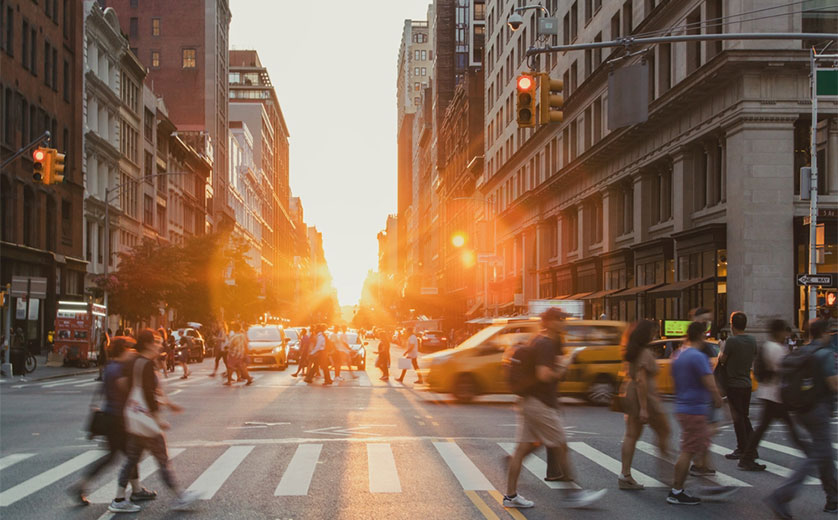A study published in The Lancet Public Health reveals how COVID-19 reshaped mobility patterns worldwide, affecting walking, driving and public transit use. The research, led by an international team including the Brown School, analyzed data from nearly 300 cities to understand how urban transportation habits adapted during the pandemic.

“COVID-19 created a global ‘natural-experiment,’ giving us a unique opportunity to study real-time changes in urban mobility,” said Rodrigo Reis, a professor at the Brown School and co-author of the study, “City Mobility Patterns During the COVID-19 Pandemic: Analysis of a Global Natural Experiment.”
The team examined data from Apple’s Mobility Trends Reports, covering 296 cities from January 2020 to February 2022. The study found a sharp decline in all forms of transportation during the initial 2020 lockdowns. However, by April 2020, mobility began to rebound at different rates, influenced by city density, pandemic severity, and economic conditions.
Lower-density cities saw quicker recoveries in driving and walking, while dense urban areas, reliant on public transit, recovered more slowly. Cities with higher infection rates saw increased driving and walking, while cities with fewer cases turned to public transportation.
The study also examined over 500 global policies on mobility and active transportation, aiming to inform future urban planning that support healthier, and more resilient cities.
Review examines link between physical activity and climate change
A new umbrella review co-authored by Reis, along with the Brown School’s People, Health, and Place Unit (PHP), explores the complex relationship between physical activity and climate change. Published in the Journal of Physical Activity and Health, the study analyzes how each impacts the other.
The review, based on nearly 1,300 peer-reviewed articles, finds that while rising temperatures can encourage outdoor activity, extreme heat and pollution often reduce physical activity, particularly in urban areas. It also emphasizes the benefits of active transportation, such as walking and cycling, and the role of large-scale sports events in reducing greenhouse gas emissions. However, the study warns that poorly planned transportation for such events can increase emissions.
The review calls for further research and better infrastructure to support safe exercise opportunities, particularly for communities most vulnerable to climate change.
Milena Franco Silva, a PhD student in Public Health Sciences and a research assistant in the PHP Unit, also contributed as a co-author.
